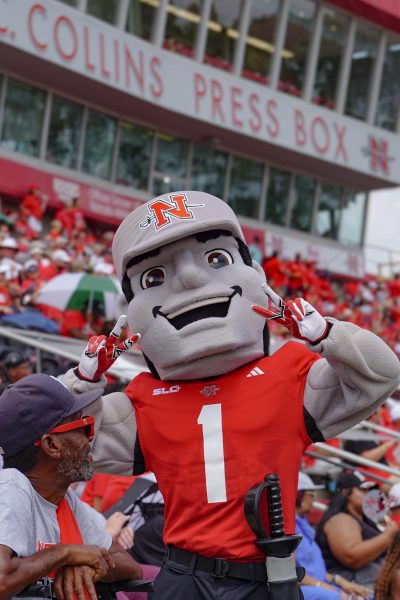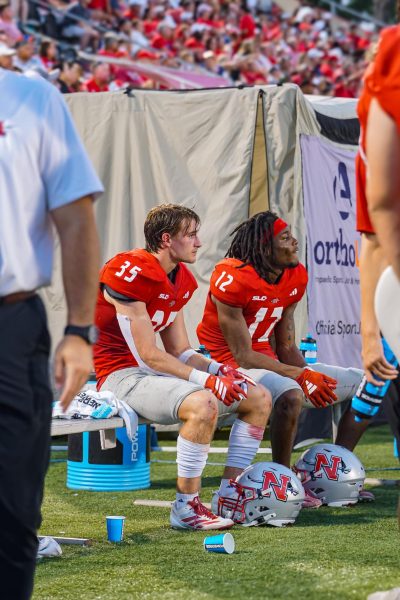Yik Yak causing problems on college campuses
Yik Yak, yet another social media site, is exposing how heinous the human factor can be as it spreads across college campuses and headlines throughout the United States.
Launched in 2013 by Furman University graduates Tyler Droll and Brooks Buffington, Yik Yak is designed as a close-proximity “virtual message board” for universities. The app is free to download and use is anonymous, which is inspiring many to leave forethought and empathy by the wayside. Users have 200 characters of wiggle room to share their thoughts, and in the two years of its existence, that space has been used to incite violence and overall aggression across the country.
Yik Yak has been dominating headlines since people began using it to spread racial slurs at universities in New York and South Carolina, sexual harassment and threats of gang rapes in Michigan and Ohio universities and a bomb threat at one university in North Carolina and not to mention numerous other incidences that go unreported like soliciting for drugs and sex.
Through this is an unnerving pattern of what people are willing to say and share behind the shield of their phones is emerging. Michelle Caruso, dean of Student Services here at Nicholls, said, “With all the social media use these days, there could be a huge impact on our culture in the future.”
“All of the initial social media created a whole new scenario for us in terms of boundaries and people not clearly understanding or developing a sense of them,” Caruso said. “For people now, in these generations using social media, that’s their norm. That’s just not a healthy theme for human beings. The long-term impact will be on the development of empathy and responsibility in our culture. When those people in 10, 15 or 20 years are making decisions about health care laws or whether we should go to war or what to do with the economy, where does that leave us if they did not appropriately develop empathy and those sorts of things?”
Chief of University Police Jaccuzzo has been with University Police for 30 years. He said the department has not had any issues so far with Yik Yak, but he has seen the development of cybercrime during his time here, which has involved accounts of stalking to threats being made on the entire campus.
“It’s a scary thing,” Jaccuzzo said. “In a second, you can really exploit, destroy and effect the persons life now, especially in the age group between 18 and 25 years old, which is the typical college student. What they think are innocent pranks can affect the individual’s career, lively-hood or their mental stability.”
“I think one of our biggest social media cases we had was when President Obama was elected,” Jacuzzo said. “The day he was elected, we had Facebook communications from an individual claiming that immediately following the election, they were going to start out with an attack on different individuals of different races, and they would brutally and violently do it on our campus.”
Jacuzzo said that within 12 hours, the person, who was using a fake account to deter officials, was arrested, which is usually the case when it comes to cyber-violence on universities. Any attempted anonymity through social media is a common misconception, he said. The department is always trying to stay ahead of any new attempts or sites that may be surfacing.
Tuesday’s feed from Nicholls community read, “I hate how gassy I get in the morning,” “Topless Tuesday, No bra for me!” and “Anyone have a blender?” proving that Yik Yak is just another outlet for people and their thoughts, however random. As posts are getting more on the negative side, other universities have decided to “geo-fence” their schools in an attempt to keep the student body safe from Yik Yak. After cyberbullying in Utica College in New York, the University “geo-fenced” itself from the site in 2014, preventing students from using the app on the premises through the Internet system. Eastern Michigan followed suit along with Norwich University and several others.
In response, some say that doing so is the equivalent of taking away first amendment rights, which is a complicated area to navigate when it comes to social media in general. Others are just seeing the cowardice behind these violent posts and questioning why people are doing these things to begin with.
Britney Fournier, a public relations senior from Houma, said universities can “geo-fence” all they like, but another app will surface regardless because people will do what they want to do.
“Well guess what? Something else is going to come up; another app to do the wrong thing. They are making them all the time! It’s not going to change anything,” Fournier said.
Fournier had the Yik Yak app for a while but lost interest in part because of the nasty remarks.
“With this, and on Facebook too, people will post stuff. Even if you don’t know who they are, you can sometimes figure it out,” said Fournier. “It’s like ‘Why do you have to use this avenue to say something like that? You wouldn’t go up and say it to their face but you’ll say it behind a screen?’ You don’t have that personal interaction when you can post it somewhere, you know? They feel like nobody knows it but them, and they just don’t care.”
Yik Yak has not posed a threat to Nicholls campus or its students so far. Overall, it can’t really be considered a “bad site.” According to Caruso, the sites that are bad are not bad to begin with.
“Sometimes, it’s not the thing itself,” Caruso said, “It’s the human factor that makes it a problem, what we do with it, and when we don’t use it responsibly. That’s the problem with it more than the inanimate thing itself.”






